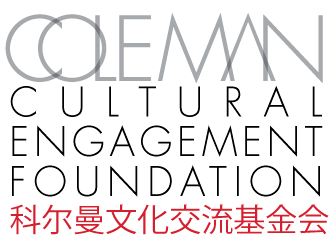

Naoto Matsumura: the world’s most radioactive man
Perhaps you have heard of Mr. Naoto Matsumura who resides near the Fukushima nuclear power plant. He has sacrificed his life by returning to his hometown of Tomioka, which lies within the radioactive danger zone, in order to take of the animals that were left behind when the town’s residents evacuated. He is truly a remarkable human being who has crossed a border few would dare to cross. Here is his story as published in the UK Mail.
World’s most radioactive man: Japanese farmer who refused to leave crippled Fukushima nuclear plant so he can take care of his animals
By Daniel Miller
They call him Radioactive Man, the Japanese farmer who refused to leave his home town despite it being less than six miles away from the crippled Fukushima nuclear plant. Defiant Naoto Matsumura, 53, is the only remaining inhabitant of the town of Tomioka which was a thriving community of 16,000 people before the tsunami hit two years ago.
The rice farmer disobeyed government orders to leave and has stayed on to feed the town’s animals including his own 50 cows and two ostriches.
Mr. Matsumura is permanently exposed to up to 17 times the level of radiation that is considered safe. He put his health at further risk by eating food that had also been exposed to radiation, although he is now surviving on relief supplies delivered from outside and water that has been checked for radiation. . . .
When researchers at the Japan Aerospace Exploration Agency conducted tests, Mr. Matsumura was found to have the highest level of radiation in anyone they had tested.
He told Vice magazine: ‘When I went down and let them look me over, they told me I was the “champion”.
‘But they also told me that I wouldn’t get sick for 30 or 40 years. I’ll most likely be dead by then anyway, so I couldn’t care less.’
Matsumura, who is a fifth generation rice-farmer, did leave the town for a short while to live with his parents in the south of the country, but after a few days he could not bear the thought of the animals left to fend for themselves so he returned.
He added: ‘I was scared at first because I knew the radiation had spread everywhere.
‘The next thought in my head was that if I stayed too long, I’d end up with cancer or leukemia. But, the longer I was with the animals, the more I came to see that we were all still healthy and that we would be OK.’
As well as the animals on his own farm Mr. Matsumura now cares for dozens of former pet dogs and cats left behind when the town was evacuated.
He explained: ‘Our dogs didn’t get fed for the first few days. When I did eventually feed them, the neighbors’ dogs started going crazy.
‘I went over to check on them and found that they were all still tied up. Everyone in town left thinking they would be back home in a week or so, I guess. From then on, I fed all the cats and dogs every day.
‘They couldn’t stand the wait, so they’d all gather around barking up a storm as soon as they heard my truck. Everywhere I went there was always barking. Like, ‘we’re thirsty’ or, ‘we don’t have any food.’ So I just kept making the rounds.’
Among the animals he rescued was a dog that had been trapped inside a cattle barn for a year and a half. It had only survived by eating the flesh of cattle that had starved to death. When Mr. Matsumura rescued it in the summer of 2012 most of its fur had fallen out.
But thanks to Mr. Matsumura’s loving care it has made a remarkable recovery and most of its fur has now grown back. Mr. Matsumura named him Kiseki, which means ‘miracle’ in English.
Without any humans about many of the town’s dogs and cats have gone feral and now live in the forest.
Sadly hundreds of head of cattle were left to starve to death inside a nearby barn and despite Mr. Matsumura’s efforts many of the survivors are severely undernourished.
Nevertheless he has pledged to stay on as long and care for them for as long as he can.
He said: ‘I was born and raised in this town,’ he told us. ‘When I die, it’s going to be in Tomioka.’
UK Mail : published: 13:45 EST, 12 March 2013 | Updated: 13:56 EST, 12 March 2013
A Facebook page has been established for Mr. Matsumura titled: Naoto Matsumura, Guardian of Fukushima’s Animals
and can be found at:

STAY CONNECTED:
Join our Newsletter to find out more:
Contact Us
Thank you for contacting the Coleman Cultural Engagement Foundation.
We will get back to you as soon as possible.
Please try again later
THE COLEMAN FOUNDATION
The Coleman Foundation is a registered 501 (c) (3) Charitable Trust.
Direct questions regarding donations to: William@colemanfndn.org
All Rights Reserved | The Coleman Foundation